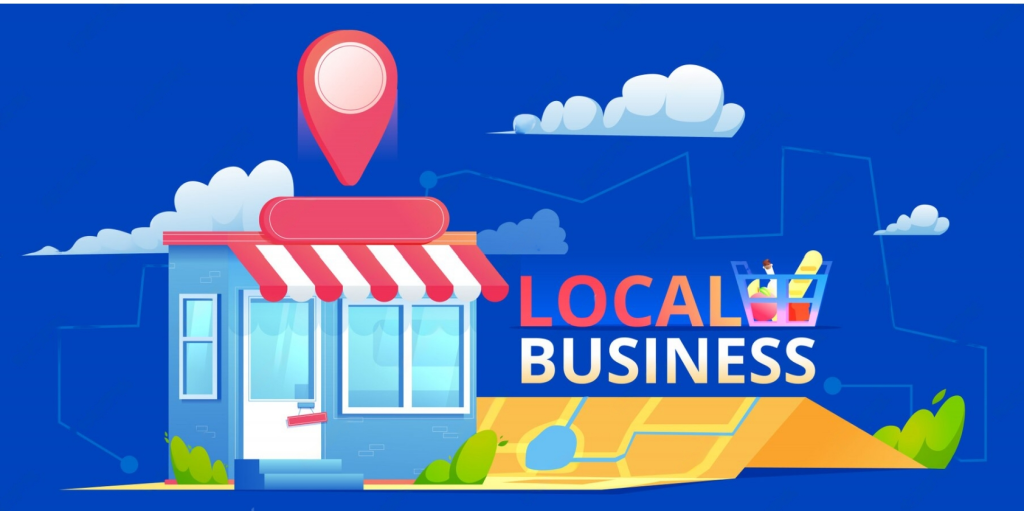
Have you ever thought why some local shops and restaurants show up first when you search online?
It’s all about being smart with local SEO! In today’s world, if you want people to find your business, you need to show up online.
Whether you run a small café, a cool clothes shop, or fix things for a living, getting good at local SEO can really help your business get noticed.
Want to make your business the one everyone finds? Let’s get started!
How Can Local SEO Transform Your Business?
SEO (Search Engine Optimization) for local businesses is a strategy designed to improve visibility in search engine results for queries specific to a local area. It targets potential customers searching for businesses, products, or services in their vicinity.
Local SEO involves optimizing a business’s online presence, including its website, Google My Business listing, local citations, and social media profiles, to appear prominently in local search results.
1. Increased Visibility in Local Search Results
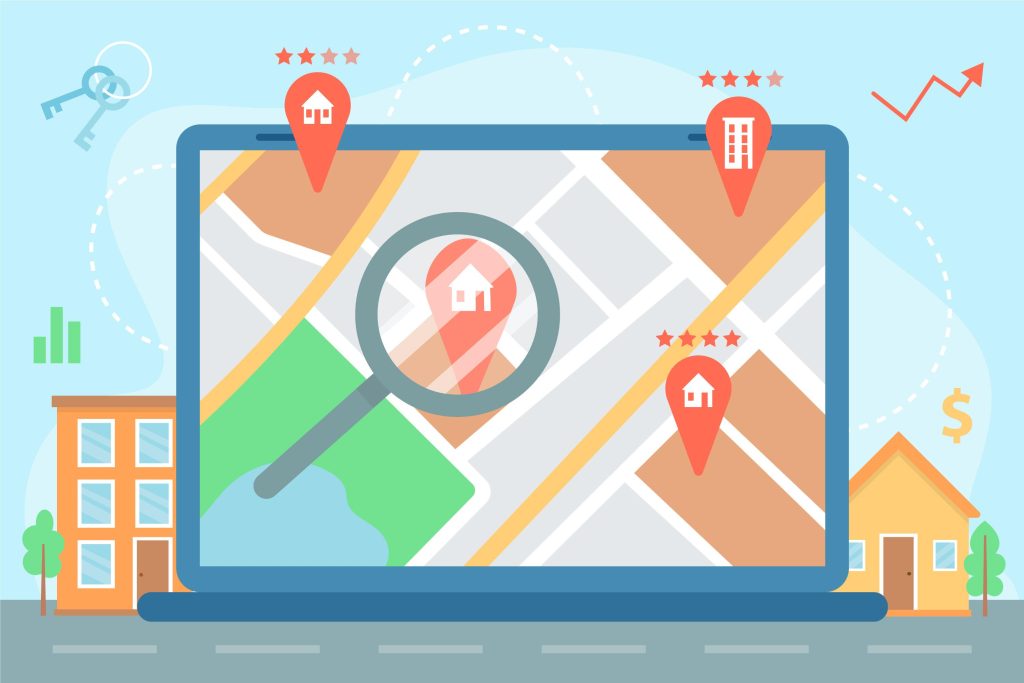
- Dominates ‘Near Me’ Searches: Targets users performing local searches, crucial for capturing immediate customer interest.
- Features in Local Pack Listings: Enhances the chance of appearing in Google’s Local Pack, automatically boosting visibility.
- Higher Organic Rankings: This improves the likelihood of your business ranking higher in local organic search results, beyond just the Local Pack.
2. Targeted Website Traffic
- High-Intent Users: Attracts users with a clear intent to purchase or engage, leading to better conversion rates.
- Localized Landing Pages: Personalized content on localized landing pages can more effectively capture local search traffic.
3. Enhanced Trust and Credibility
- Positive Reviews and Ratings: A strong presence in local search results, complemented by positive customer reviews, builds trust.
- Accurate and Consistent Listings: This ensures your business information is consistent across the web, reinforcing credibility.
4. Competitive Advantage

- Outrank Local Competitors: By optimizing for local SEO, you can appear above competitors in search results, capturing more market share.
- Visibility in Niche Markets: Specialized local businesses can dominate niche markets by targeting specific local SEO keywords.
5. Cost-Effectiveness
- Lower Advertising Costs: Local SEO can be more cost-effective than traditional advertising methods, with a higher ROI.
- Sustainable Long-Term Growth: Investments in local SEO can yield sustained growth and visibility over time, unlike paid advertising, which stops when funding ceases.
6. Adaptation to Mobile Search Trends

- Optimized for Mobile Users: This ensures your business is easily found by the growing number of mobile users conducting local searches.
- Immediate Engagement: Mobile searches often result in immediate actions, like calls or visits, making mobile optimization crucial.
7. Opportunity for Local Community Engagement
- Local Events and Sponsorships: This increases visibility and engagement through participation in local events, fostering community support.
- Collaborations with Local Businesses: Collaborating with other local businesses can boost local SEO through shared promotions and link building.
8. Better Understanding of Your Market
- Insights from Local Search Data: Analyzing local search trends provides valuable insights into customer behavior and preferences.
- Tailored Marketing Strategies: This allows for more targeted and effective marketing strategies that are specifically designed for the local audience.
Ready to Dominate Your Local Market? Our SEO Guide Will Help You
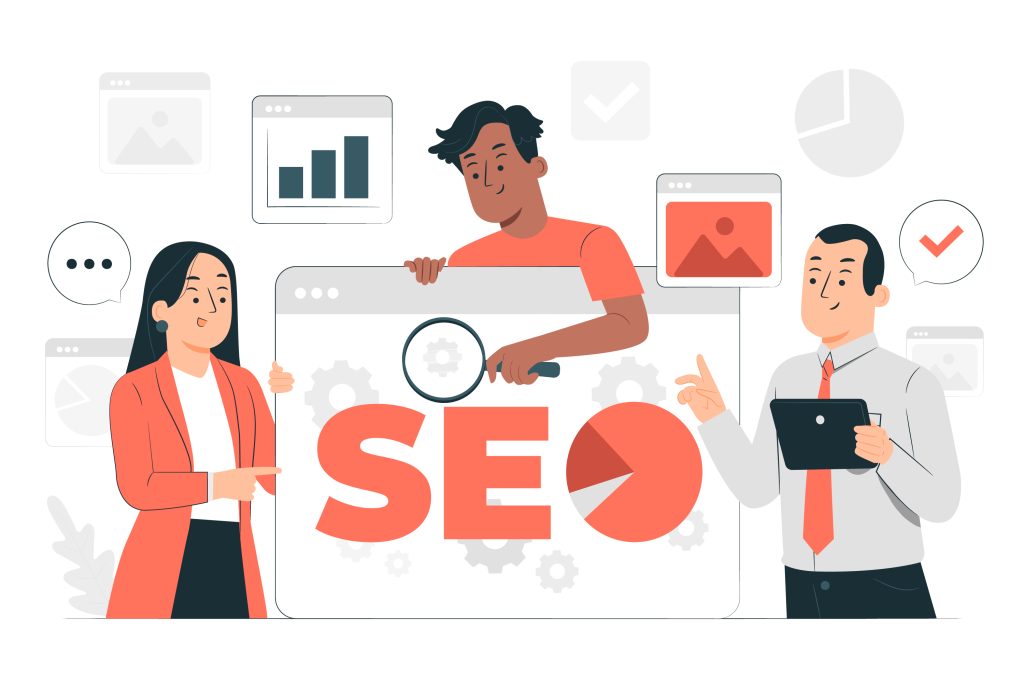
At PushX, we’ve been helping lots of local businesses with their SEO for many years. We know a lot about how to make your business show up online in your local area.
So, we decided to put together a guide to share our knowledge with you. This guide is full of tips and steps that are easy to understand and follow. It’s made for business owners like you who want to start doing SEO on their own.
We made sure everything is simple to get, so you can start making your business more visible online right away.
1. Make Your Business Easy to Find on Google
- Sign Up for Google My Business: This helps people find your business when they search on Google.
- Fill Out Your Info: Add your business name, where it’s located, your phone number, and when you’re open.
- Add Pictures: Put up photos of your business or what you sell.
2. Use keywords People Search for in Your Area

- Find Popular Words: Use tools like Google to see what words people use to find businesses like yours.
- Use Those Words on Your Site: Put those popular words in your website’s text, like in descriptions and titles.
3. Make Your Website Mobile-Friendly
- Easy to Use on Phones: A lot of people use their phones to look things up, so make sure your website works well on mobile devices.
- Make It Load Fast: Use tools to check your website’s speed and make it faster if needed.
4. List Your Business in Online Directories
- Get Listed: Put your business in online phone books and directories like Yelp and Yellow Pages.
- Keep Info the Same: Make sure your business name, location, and phone number are the same everywhere they’re listed.
5. Get Good Reviews

- Ask Happy Customers to Leave Reviews: This can make your business look great to others.
- Reply to Reviews: Say thank you to good reviews and respond nicely to any bad ones.
6. Write About Local Stuff
- Talk About Your Area: Write blog posts or articles on your website about local news or events related to what you do.
- Make Pages for Different Locations: If you serve different areas, have a special page for each location.
7. Use Social Media to Connect with Local People
- Post on Social Media: Share things that local people might like or find useful.
- Use Local Hashtags: This can help more local people see your posts.
8. Get Links from Other Local Businesses
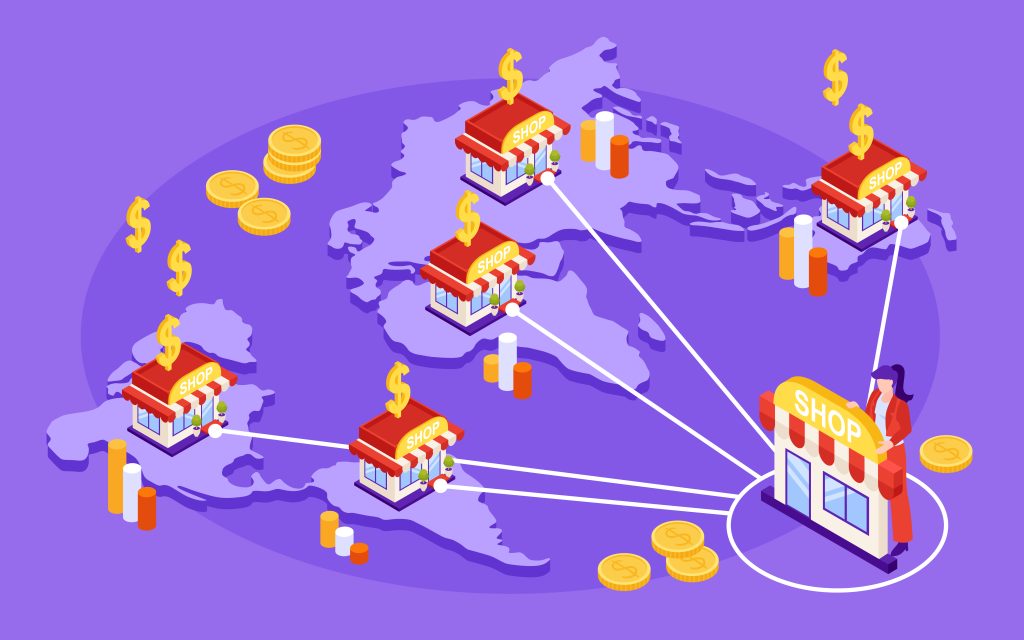
- Work Together with Nearby Businesses: Maybe you can support each other and share links on your websites.
- Get Noticed by Local News: Try to get your business mentioned in local newspapers or websites.
9. Make Your Website Easy to Navigate
- Use Local Information Markup: This is a bit technical, but it’s about making sure Google knows where you are and what you do.
- Link Pages Together: Help people and search engines find important pages by linking to them from other parts of your site.
10. Keep an Eye on How You’re Doing
- Use Google Analytics: This free tool shows you how people find and use your website.
- Watch Your Rankings: Check where you show up in search results for words related to your business and try to improve.
How Can Advanced Local SEO Strategies Elevate Your Business’s Online Presence?
For local businesses aiming to elevate their SEO game beyond the basics, implementing advanced strategies can lead to significant improvements in search visibility and customer engagement. Here are some more sophisticated tips for optimizing your local SEO efforts:
1. Advanced Keyword Optimization
- Long-Tail Keywords: Focus on long-tail keywords that include local identifiers. These are more specific phrases that potential customers might use when they’re closer to making a purchase.
- Voice Search Optimization: With the rise of voice search, optimize for natural language queries. People tend to use more conversational phrases when using voice search, so include these in your content.
2. Localized Content Marketing
- Community Involvement Stories: Share stories about your involvement in local events, sponsorships, or charities. This not only boosts your local presence but also enhances brand image and trustworthiness.
- Local Guides and Resources: Create local guides or resources relevant to your business niche. For example, a restaurant might publish a guide on the best local food experiences in their city.
3. Improve User Experience (UX)
- Site Navigation: Ensure your site navigation is intuitive and logical. A well-structured website helps visitors find information quickly and easily, reducing bounce rates and improving rankings.
- Page Speed: Advanced optimizations for page speed, such as image compression, using a Content Delivery Network (CDN), and minifying CSS and JavaScript, can significantly improve load times.
4. Structured Data Markup for Local SEO
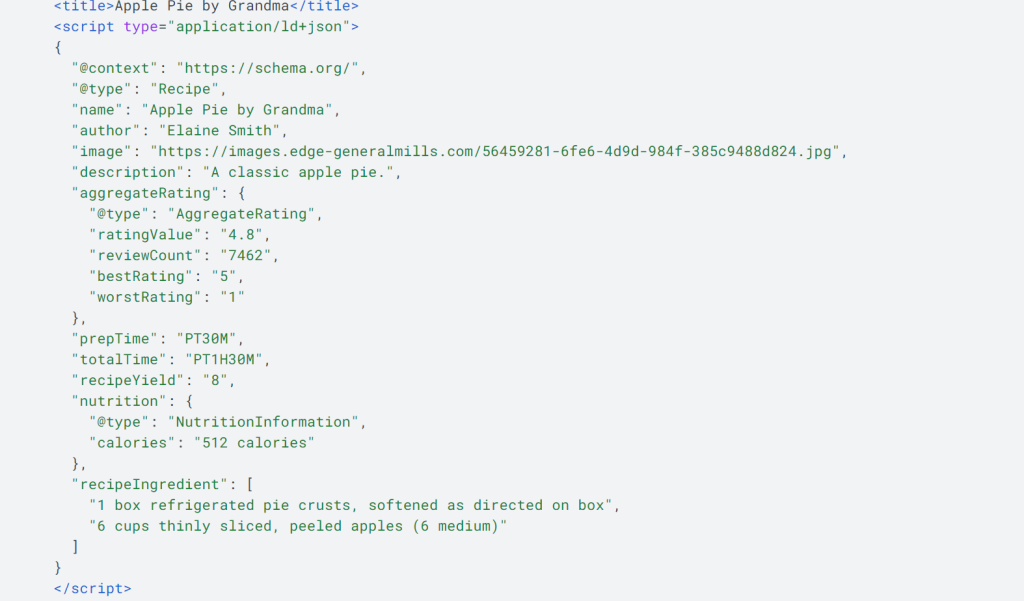
- Schema Markup: Use Schema.org markup to provide search engines with detailed information about your business, including services offered, reviews, and local business details. This can enhance your presence in search results with rich snippets.
- FAQ Schema: Implement FAQ schema on your site to answer common customer questions. This can help your site appear in Google’s “People also ask” section.
5. Hyperlocal SEO
- Neighborhood-Specific Pages: If your business serves multiple neighborhoods within a city, consider creating pages for each neighborhood with tailored content and local keywords.
- Local Landing Pages: For businesses with multiple locations, ensure each location has its own dedicated page with unique content, local keywords, and local backlinks.
6. Local Backlink Strategy
- Guest Blogging: Write guest posts for local industry blogs, news sites, or community blogs. This can drive local traffic and improve local search rankings.
- Partnerships and Sponsorships: Partner with other local businesses or sponsor local events to get your name out in the community and earn backlinks.
7. Monitor Local Competitors

- Competitor Analysis: Regularly analyze what local competitors are doing in terms of SEO. Look at their keyword strategy, content, backlink profile, and GMB listings to identify opportunities for improvement in your own strategy.
8. Collaborate with Local Social Media Influencers
- Collaborate with Influencers: Partner with local social media influencers to reach a broader local audience. Choose influencers who align with your brand values and whose followers are likely to be interested in your products or services.
9. Optimize for “Near Me” Searches
- “Near Me” Keywords: Include “near me” phrases in your meta tags, alt text, and content where appropriate, as these searches have become increasingly popular.
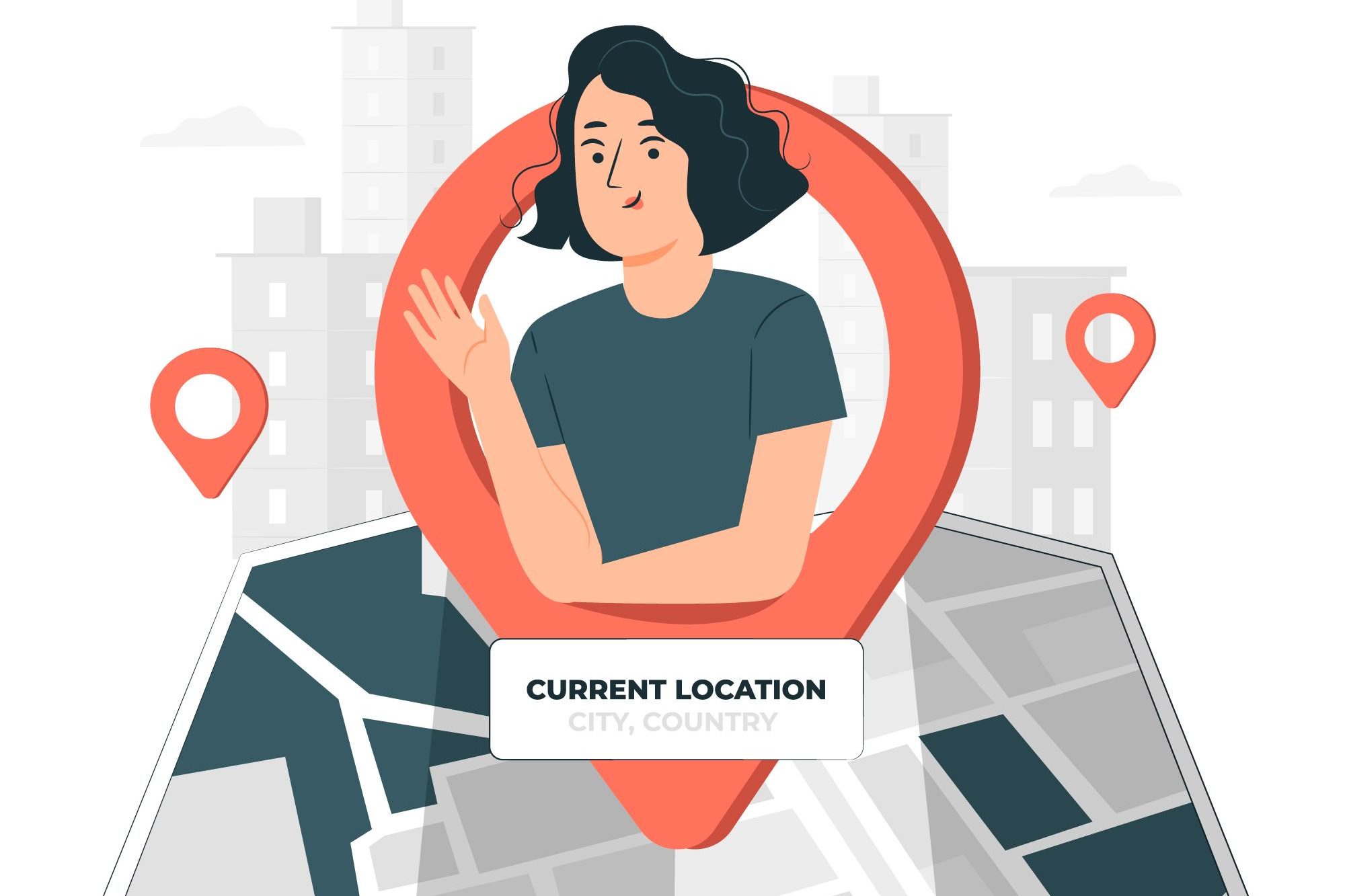
10. Continuous Performance Analysis
- Advanced Analytics: Utilize advanced analytics tools to delve deeper into your website’s performance. Look at local search metrics specifically, like location-based conversion rates, to understand what works and what needs adjustment.
🔥 Final Says
Local SEO helps your business get noticed online by people nearby. It’s like putting up a big sign that says, “Hey, we’re here!”
By using tips like signing up for Google My Business, using the right words on your website, and making sure your site works well on phones, you can attract more customers. Getting good reviews and talking about local stuff also helps.

It’s a smart way to make your business more popular without spending a lot of money. Plus, you’ll stand out more than other businesses around you.
Just keep improving and checking how well you’re doing, and you’ll see your business grow!
FAQs
Ans: Local SEO is a way to make your business more visible in local search results on search engines like Google. It aims to reach local customers right when they’re looking for your products or services.
Ans: It helps you reach potential customers in your area, making it easier for them to find and visit your business. This increases your visibility and can lead to more in-store visits and sales.
Ans: Start with a Google My Business account to manage your online presence across Google, including Maps and Search. Ensure your business details are consistent across the web and focus on getting customer reviews.
Ans: It’s a free tool that lets you manage how your business appears on Google Search and Maps. A well-optimized Google My Business profile can significantly enhance your local SEO.
Ans: Yes, if you serve multiple locations. This helps search engines provide accurate information to users searching for your business in different areas.
